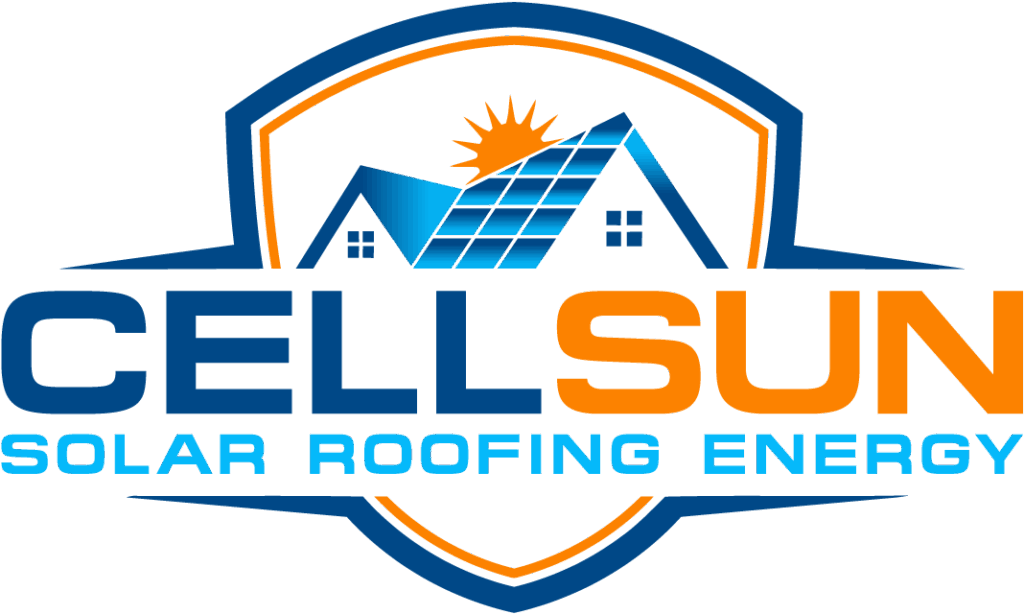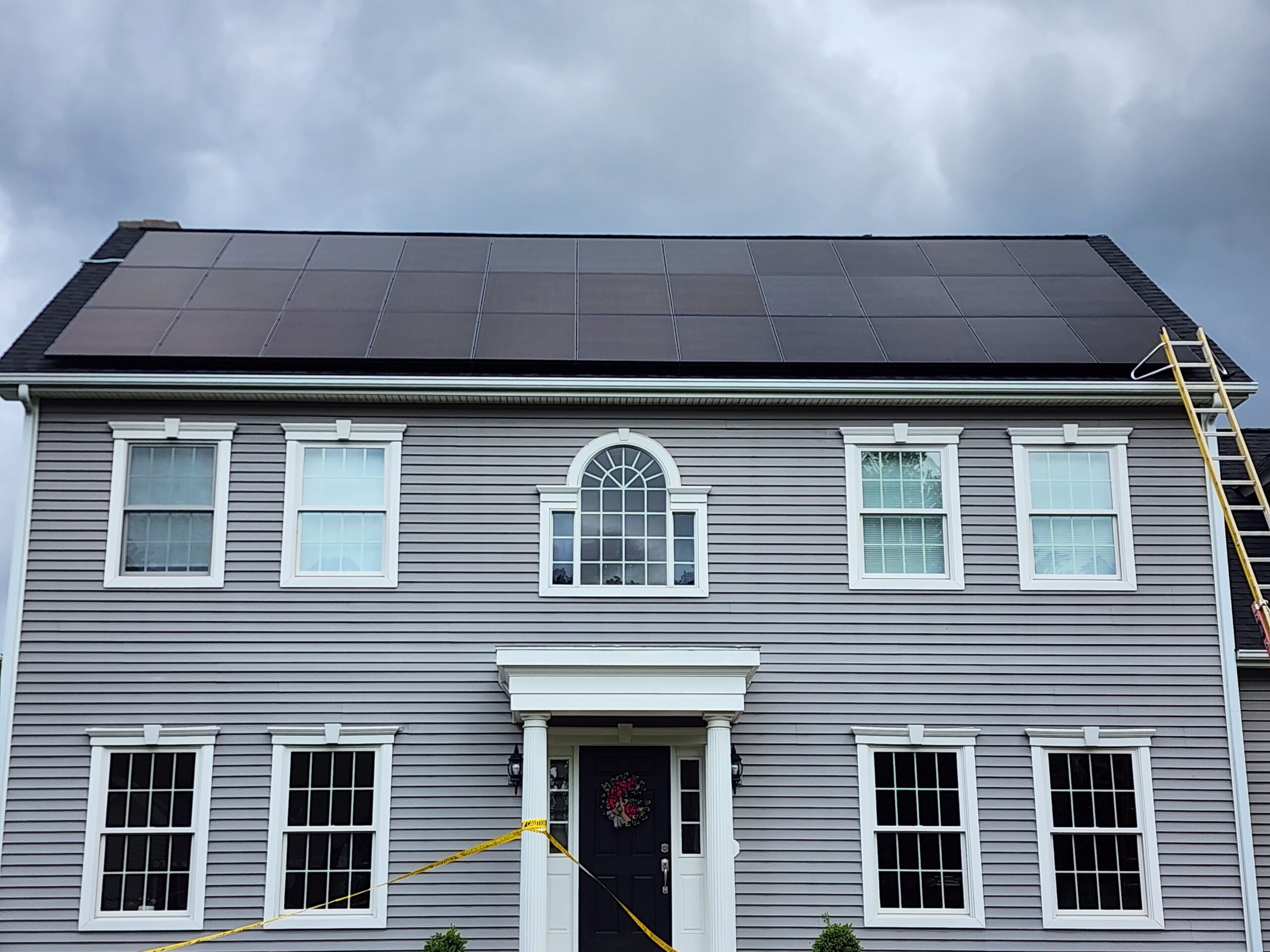
All that goes into the installation process of putting the panels...
What are the long term requirements to keeping panels up to par and..
Be informed for your consultation with an installer salesperson and...
At CellSun, we believe that solar isn’t just about panels—it’s about people.
Founded by Cameron and Marlis, CellSun was built to bring back the personal touch that’s often lost in today’s solar industry. With Cameron’s proven track record of selling over 4 million watts of solar power and former COO experience driving $30+ million in annual revenue, combined with Marlis’s commitment to individualized solutions, we deliver an exceptional experience from start to finish.
Our motto is simple: “Every client, every time, no exceptions, no excuses.” We’re here to deliver more than solar power—we deliver peace of mind, lasting savings, and a brighter future for your home.
Ready to experience the CellSun difference? Let’s design your perfect solar solution together.

Renewable energy is the future, make it brilliant.
Installing solar in Connecticut offers three major benefits: financial savings through reduced electricity bills and protection from rising utility rates, environmental stewardship by reducing harmful pollutants and climate change emissions, and increased home value with studies showing solar homes can sell for more than non-solar homes, potentially exceeding the value increase of a major kitchen remodel.
For a typical 6 kW system costing approximately $18,000, Connecticut homeowners can reduce their out-of-pocket expense by more than a third through available incentives. The Federal Solar Investment Tax Credit provides a 30% credit (~$5,400), and Connecticut's sales tax exemption saves 6.35% (~$1,143). Combined, these reduce the net cost to approximately $11,457, representing about 36% in total savings.
The Federal Solar Investment Tax Credit (ITC) is a non-refundable tax credit allowing homeowners to deduct 30% of their solar installation cost from federal income taxes. You must purchase or finance your system to qualify (leases/PPAs don't qualify). Unused credits can roll over to future years. The current 30% credit expires December 31, 2025, making it important to act soon.
Connecticut offers several valuable incentives: a sales tax exemption (6.35% savings), property tax exemption preventing solar from increasing your property taxes, the Residential Renewable Energy Solutions (RRES) program with Netting and Buy-All tariff options, and the Smart-E Loan program offering low-interest financing that can even cover related home improvements like roof repairs.
Buying (cash or loan) provides the greatest financial benefit, full eligibility for incentives, and increases home value. Leasing/PPA offers low upfront costs but no ownership, no federal tax credit eligibility, and can complicate home sales. The financing choice directly determines your access to valuable incentives worth thousands of dollars.
Pros: No large upfront payment, retain ownership and all incentives, often low interest rates. Cons: Interest payments over time. Loans can be secured (lower rates, requires collateral) or unsecured (higher rates, no collateral needed). Connecticut's Smart-E Loan program offers particularly attractive low-interest options.
While south-facing roofs with minimal shading are ideal, many homes can benefit from solar even without perfect conditions. Solar panels can be effective on roofs with other orientations. Generally, homes with monthly electricity bills over $75 should consider solar, as higher bills mean quicker payback periods. A professional assessment is the best way to determine your property's solar potential.
System size (measured in kilowatts) is determined by analyzing your last 12 months of utility bills, available roof space, and local weather patterns. Solar professionals use your historical energy consumption data to design a system precisely tailored to your needs. You don't have to offset 100% of your usage - even smaller systems provide significant savings.
Solar panels use photovoltaic cells to convert sunlight into DC electricity, which is then converted to AC electricity by an inverter for home use. While panels don't produce energy at night, they can still generate electricity on cloudy days using UV light. Production decreases in cloudy weather but isn't eliminated entirely.
Since solar panels last 25-35+ years, it's highly recommended to repair or replace an aging roof before installation to avoid the costly process of removing and reinstalling panels later. Connecticut's Smart-E Loan can help finance roof repairs alongside your solar installation, bundling everything into one project.
Solar panels are guaranteed to produce energy efficiently for at least 25 years, with many lasting 35+ years. They experience minimal degradation (0.8-1.2% per year), which isn't significant until after several decades. While inverters may need replacement after 10-15 years, this cost can be covered by extended warranties.
Connecticut's Residential Renewable Energy Solutions (RRES) program replaced traditional net metering in 2022. It offers two tariff options: the Netting Tariff (similar to traditional net metering with credits for excess energy) and the Buy-All Tariff (sell all generated electricity at a fixed rate while purchasing all consumed electricity from the grid).
The process includes: initial consultation and quote comparison, site visit and property inspection, design approval, permitting and utility paperwork (handled by installer), physical installation (1-2 days), and final utility Permission to Operate (PTO). The permitting and utility approval can be the longest part of the process.
Solar systems are remarkably low-maintenance with no moving parts. Panels are typically self-cleaning through rain and snow. Occasional professional cleaning may help in high-dust areas. Reputable installers provide comprehensive warranties covering panels (25+ years), inverters, and workmanship to protect your investment.
Standard grid-connected solar systems automatically shut down during power outages for safety reasons (to protect utility workers). To have electricity during blackouts, you need a battery backup system. Connecticut's Energy Storage Solutions Program provides incentives up to $250/kWh for battery installation.
Look for installers who are certified, licensed, experienced, and have excellent customer reviews. Meet with them in person, ensure their proposals are clear and transparent, and ask for customer references. Compare multiple quotes, but remember that the lowest price isn't always the best value - quality and service matter significantly.
Owned solar systems significantly increase home value, often exceeding the return of major renovations. Leased systems can complicate sales. Connecticut provides a property tax exemption for renewable energy systems, so the added value from solar won't increase your property taxes - you get the benefit without the tax burden.
No. The Department of Energy has explicitly stated that no federal programs provide free solar installations. Claims of "free solar" are scams. While government programs offer significant tax credits and rebates that can reduce costs substantially, none provide equipment for free. Be wary of anyone claiming otherwise.
Yes! Solar panels work effectively in Connecticut winters, generating electricity even on cloudy, cold, or snowy days using UV light. They're installed at angles that allow snow to slide off easily and are designed to withstand extreme weather. Don't manually clear snow - it's often unnecessary and can be dangerous.
Yes, you'll typically still receive an electric bill, but it will be much smaller. Your bill has two components: consumption charges (for electricity used) and fixed service charges (for grid connection). Solar can eliminate or greatly reduce consumption charges, but fixed service charges usually remain.
Owned systems are valuable assets that increase home value and appeal to buyers. Leased systems can complicate sales - you'll need to transfer the lease to the buyer or buy it out before selling. This is another important reason why ownership typically provides better long-term value.
Solar energy significantly reduces greenhouse gas emissions and fossil fuel dependence. Solar panels typically offset their manufacturing carbon footprint within 2-3 years of operation. Solar energy uses less water and has a lower overall environmental impact compared to conventional energy sources throughout its lifecycle.
Yes, solar panels are recyclable. They're composed of glass, aluminum, silicon, and other materials that can be separated and repurposed at the end of their lifespan. Organizations like the Solar Energy Industries Association provide information on recycling processes, ensuring environmental benefits extend throughout the entire product lifecycle.
Start by researching your options and getting quotes from multiple reputable installers. Analyze your electricity usage, understand available incentives, and compare financing options. Consider working with a trusted advisor who can connect you with vetted installers and help you navigate the process from initial consultation to final installation.
Every homeowner's situation is unique, and you may have specific questions about your property or circumstances. Contact us directly for personalized consultation and answers to any solar-related questions. We're here to provide transparent, helpful information to guide your solar decision-making process.
We’ve broken down the solar conversion process into four simple steps. Obviously you should have a solar professional walk you through each step.
Run a qualified Shade Report to determine your potential output and performance.
By choosing the right components and by working with a qualified solar installer, you can customize your solar needs to meet your specific requirements.
Use one of the many financing vehicles to getting yourself setup with solar. Whether Cash, Lease/PPA, or Loan. (PPA stands for Power Purchase Agreement)
In general, however, most solar panel installations can be completed in a single day or two.
We are always happy to help with any solar questions that you may have. We can provide you with information on the benefits of solar energy, the different types of solar panels available, and the installation process. We can also help you to find a solar installer in your area.
Fringilla etiam tempor faucibus ullamcorper arcu nulla duis. Magnis faucibus nulla risus laoreet maximus. Diam lorem suscipit nisi imperdiet quis feugiat nec pede mauris vel iaculis. Sociosqu magna mi mollis litora nascetur pharetra.
Fringilla etiam tempor faucibus ullamcorper arcu nulla duis. Magnis faucibus nulla risus laoreet maximus. Diam lorem suscipit nisi imperdiet quis feugiat nec pede mauris vel iaculis. Sociosqu magna mi mollis litora nascetur pharetra.
We not only give valuable solar information to our followers but if you are someone ready to get serious about installing solar on your home or commercial space, we can sign you up for a quote and get our install partners ready to help you secure your future.
Lorem ipsum dolor sit amet, consectetur adipiscing elit. Ut elit tellus, luctus nec ullamcorper mattis, pulvinar dapibus leo.